No Pasta Winter Lasagna
Feb 07, 2011, Updated Oct 03, 2017
January Rules has made me reconsider a lot of my food choices pertaining to Rule #1: When you eat grains, eat only 100% whole grains.
I realized that I depend heavily on refined flours to keep me “satiated,” especially on Mondays and Tuesdays when I follow a vegetarian diet. My day used to start with processed food: Cold cereal, five days a week! Even though I always knew that refined flours were bad for my health, I just didn’t realize how much I consumed them and how much they were robbing me of real nutrients.
Refined flours are filler foods that have taken the place of foods that actually nourish and satisfy you completely. For instance, sugary desserts like Twinkies have taken the place of whole fruits like peaches. Coincidentally, most foods that are made with refined flours also contain high amounts of fats and sugar or salt. (High amounts of fats, salt, and sugar are unnatural in most whole foods). Thus, refined flours have a strong negative effect in our overall well-being, causing a series of preventable ailments. Naturally, when you cut out processed food and replace them with whole foods, you start feeling the benefits of a more nutritious diet. Increased energy, endurance, and weight loss are just some of the positive changes you will experience.
Though, old habits can creep back in and people/situations may tempt you to stray from your new eating ways. I quickly realized that the only way not to “relapse” and go back to my old eating habits, was to create new ones that actually satisfied me. So here is my rule to support Rule #1 of Andrew’s three basic rules: When cutting out processed, refined flours, you need to replace those foods with real, whole foods. If you have avoided potatoes, thinking they are bad carbs, reintroduce them back into your meal plan. Potatoes and other natural starches are actually really good for you. Instead of having unwhole grain toast try roasted potatoes. Or instead of pasta, try quinoa or soba noodles.
I love experimenting with traditional recipes and finding wholesome substitutes for the regular pasta or bread. I am also super-busy and prefer to make meals that will stretch out for several days. Pasta dishes are my favorite but I have replaced the refined stuff for beans, starches, and other whole grains. It really works; you just have to be open-minded. I really like making lasagna, because you can make a large amount at once so we will have food for several nights. I choose to substitute the lasagna sheets (which are made from refined flour) for slices of potatoes. Potatoes have fiber, vitamin C, vitamin B6, potassium and manganese. Also, a recent study found that potatoes have a particular starch that aids in satiation and possibly weight-loss. (Andrew’s Note: The study was funded by the United States Potato Board, which of course doesn’t invalidate the study, but it does mean that some skepticism may be in order).
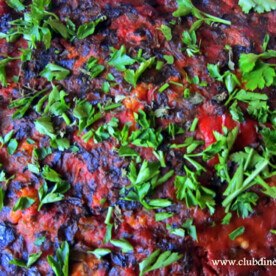
No Pasta Winter Lasagna
Ingredients
- 2 cups plain marinara or pasta sauce
- butter, for greasing
- 1 tablespoon olive oil
- 4 cloves garlic, finely sliced
- 1 teaspoon red chili flakes
- 2 bunches spinach with stems, washed well and still damp
- 1 large russet potato, scrubbed and cut into thick slices
- 1 portobello mushroom, cut into ¼ inch thick slices
- 1/4 cup dried basil and/or oregano
- 1/2 teaspoon freshly ground black pepper
- ¼ - ½ cup Cauliflower, cut into small pieces
- 1 cup fresh Ricotta, optional
- 1/4 cup grated Parmesan or Pecorino cheese, optional
- 2 Tbs. Olive Oil, for drizzling
Instructions
- Preheat the oven to 375 degrees F. Butter a 9" x 9" glass baking dish.
- Warm 1 tablespoon olive oil in a medium pan, over medium heat. Add garlic and hot pepper flakes, and sauté until the garlic turns golden brown. Turn up the heat to medium-high and add spinach. Sauté the spinach until all of the water has evaporated, about 5 minutes.
- Meanwhile, spoon ½ cup of the marinara sauce over the bottom of the prepared baking dish. Arrange the potato slices on top of the marinara. Next, arrange the portobello slices over the potatoes. Spoon more marinara and sprinkle 1 tablespoon of herbs over the mushroom. Spread out the sautéed spinach and cauliflower over the marinara and herbs. Next, spread the ricotta with the remaining marinara over the layers of vegetables. Sprinkle with parmesan, black pepper, and remaining herbs. Drizzle two tablespoons of olive oil.
- Bake for 40 minutes. Serve warm over a bed of cooked quinoa.
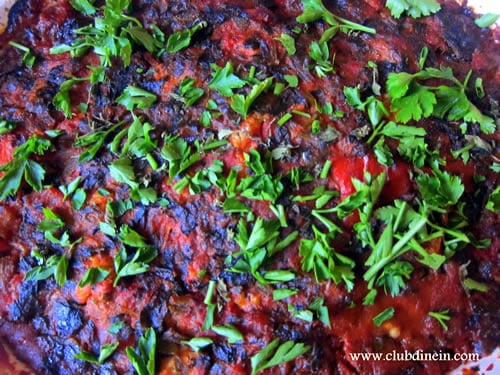
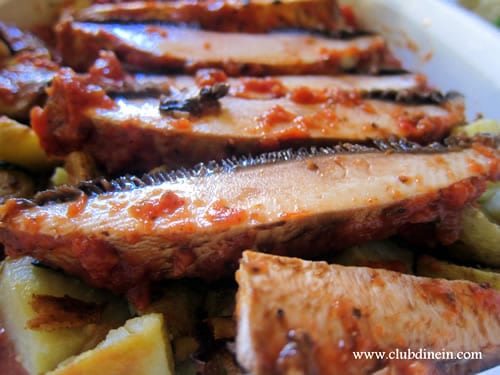
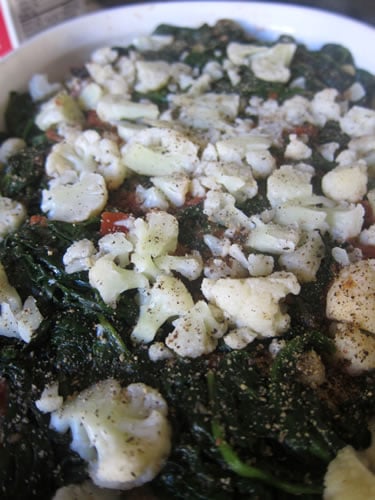
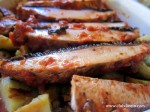

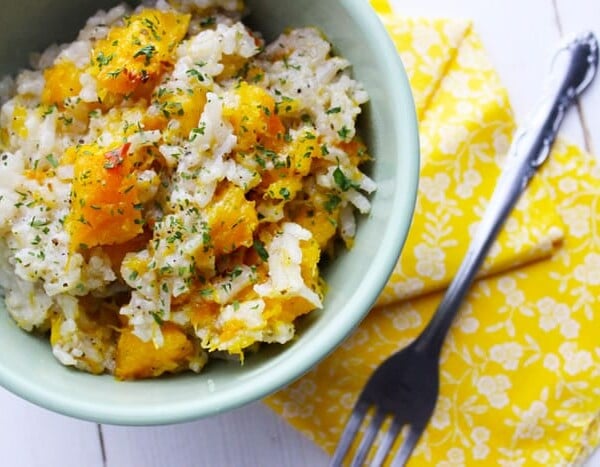
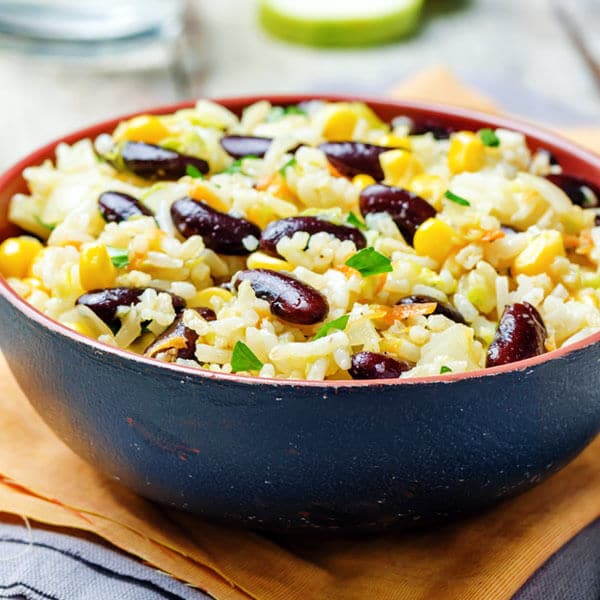
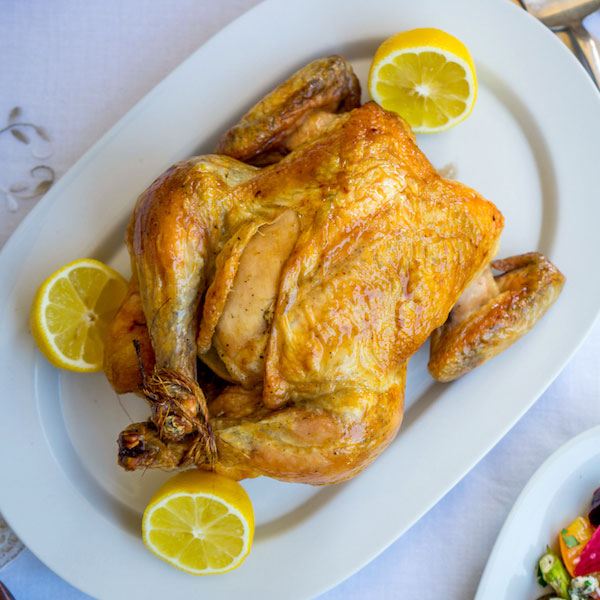
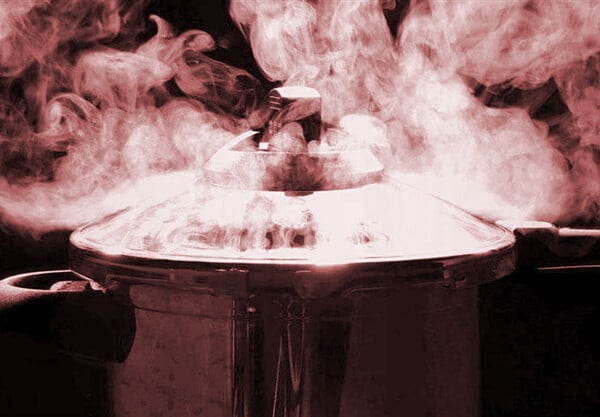















Fantastic ideas, as usual!
You say…
“If you have avoided potatoes, thinking they are bad carbs, reintroduce them back into your meal plan. Potatoes and other natural starches are actually really good for you.”
Says who?
I do avoid potatoes and do think that they’re “bad carbs” because of how they’re rated on the glycemic index. In order for me to consider something with such a very high GI rating to be “really good for you” it would have to be just loaded with something that’s not easily found elsewhere. Are you really thinking that some vitamin C, and B6 compensates for the bad side of potatoes? Or are you alluding to something else you didn’t mention here?
I don’t know to what resources Nimisha is referring, and you’re right — I should’ve asked her for a link or reference. (I think she’s on vacation right now, so we probably can’t get a response from her right away). I think with potatoes it makes a huge difference if you’re eating them with or without the skin… Kind of like eating refined grains vs. whole grains. If you take a look at a medium, whole, baked potato on Nutrition Data, you’ll find some interesting stats. For starters, it’s only a 17 out of 250 on their (proprietary) Estimated Glycemic Load scale (which is a little different than the classic glycemic index). Not great, considering that they claim you should be limited to a total of 100 per day, but not horrendous, either. That same potato is a decent source of fiber (4 grams) and protein (4 grams), and has… Read more »
What are the bad effects of potatoes that you refer to? Are you avoiding potatoes for weight loss or for a health concern? The GI is one way to look at food or food can be looked at as a whole. While, potatoes have been touted for their carbohydrate content, they also contain nutrients such as phytochemicals, fiber, vitamins, and minerals. In other words, potatoes are not refined carbohydrates. If you follow a diet based on whole, unprocessed-food and do not have any major health concerns, potatoes alone should not possess any harm to you. Potatoes are not the culprit of weight gain. As Andrew has already stated, it is often the cooking method that makes the potatoes unhealthy. There is a huge difference between potato chips and roasted potatoes. Even though both dishes may be regarded as carbs, they are on different ends of the spectrum. Potatoes have a… Read more »